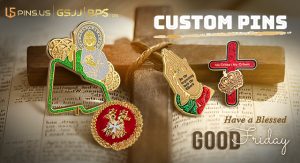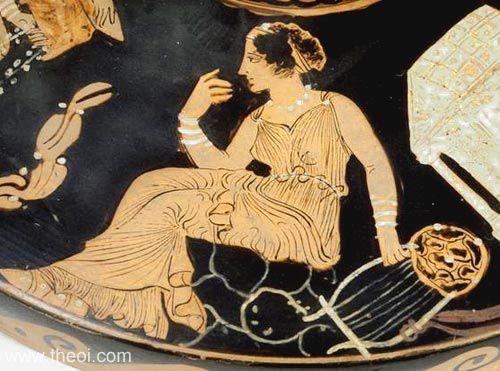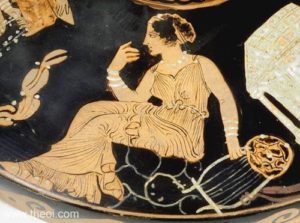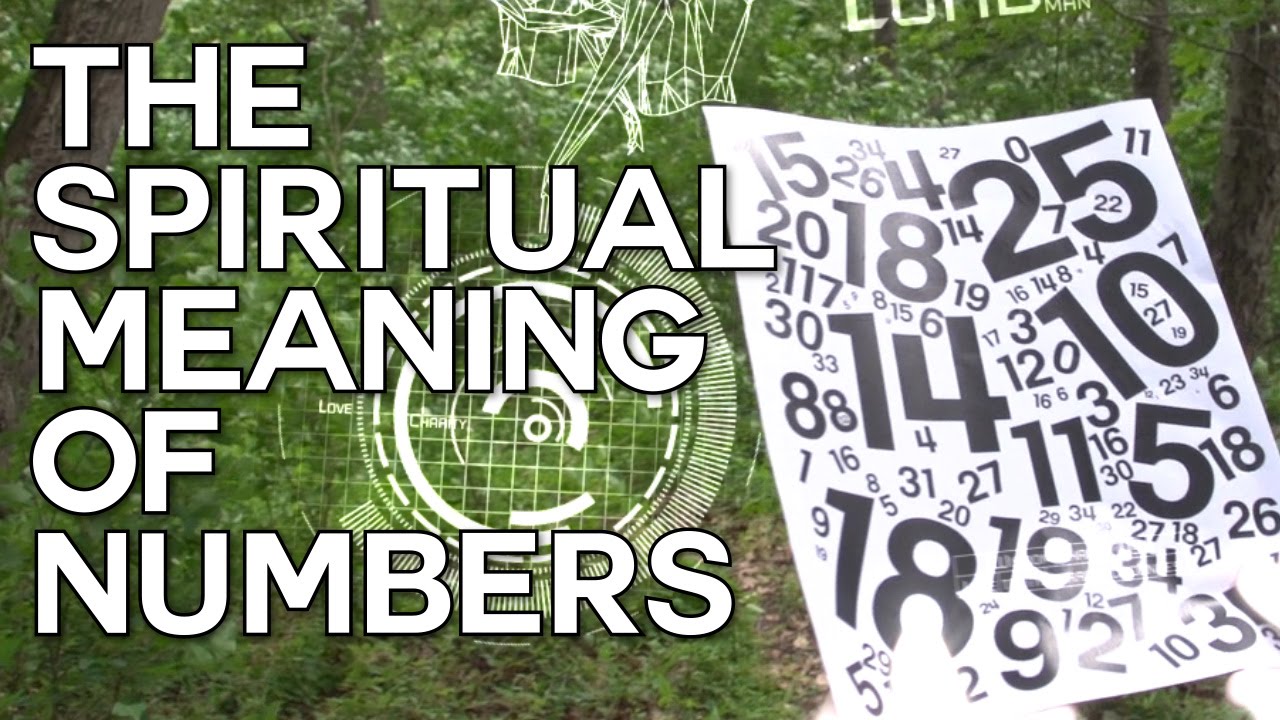
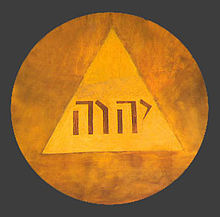 Tetragrammaton by Francisco Goya: “The Name of God”, YHWH in triangle, detail from fresco Adoration of the Name of God, 1772
Tetragrammaton by Francisco Goya: “The Name of God”, YHWH in triangle, detail from fresco Adoration of the Name of God, 1772Three is the first number to which the meaning “all” was given. It is The Triad, being the number of the whole as it contains the beginning, a middle and an end. The power of three is universal and is the tripartide nature of the world as heaven, earth, and waters. It is human as body, soul and spirit.
In the first three numbers, all of the others are synthesized. From the union of oneness and duality (which is its reflection), that is, from triad, proceed all of the other numbers, and from this primordial triangle all figures derive.
There is also, for traditional civilizations, a direct relationship between numbers and letters of the alphabet, to the point where, with many alphabets, numbers were represented by letters, and had no special signs of their own. This is not the case with the early American cultures, which knew no alphabet, but we wish to call attention to this correspondence because not only the alphabetical code, but the numerical one, as well, describe all reality: that is, everything that is numerable or namable–in the sense of “ciphers,” harmonious measures, “proportions”–in sum, the totality of the cosmos, of the knowable.
This threeness or triad, has always been considered sacred–like oneness, duality, and all numbers–by virtue of its very properties and particular attributes. These properties and attributes are manifested in its threefold nature, which of itself is the inevitable expression of a principle, an archetypal fact, that solidifies in a series, as a representation of ideas and energies that materialize in magical, mysterious fashion while obeying precise, universal laws, which the numerical codes and their geometrical correspondences symbolize.
In numerology the number 3 is a whirlwind of expressiveness, joy, and boundless, childlike imagination. Threes possess vibrant energy, opening doors to self-expression and communication. Three’s magnetic personality draws people into its exciting presence.
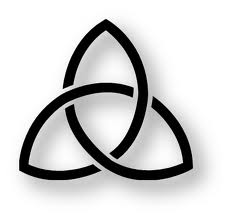 Trinity Symbol
Trinity SymbolThis symbol a triad or trinity. It is a symbol of the unity of body, mind and spirit. The symbol is of universal significance – it is found throughout history and all over the world. It was popularized early in this century by the Russian-born artist, philosopher and scientist Nicholas Roerich. (http://www.roerich.org). It can be interpreted in many different senses: spirit/mind/body in a circle of synthesis; past/present/future enclosed in the ring of eternity; art/science/religion bound in a circle of culture.
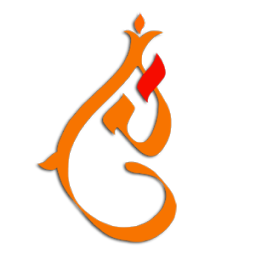 Chintamani
ChintamaniThe oldest of Indian symbols, Chintamani, the sign of happiness, is composed of this symbol and it can be found in the Temple of Heaven in Beijing. It appears in the Three Treasures of Tibet; on the breast of the Christ in Memling’s famous painting; on the Madonna of Strasbourg; on the shields of the Crusaders and coat of arms of the Templars. It can be seen on the blades of the famous Caucasian swords called “Gurda” and on the swords of Japanese nobility.
It appears as a symbol in several philosophical systems. It can be discovered on the images of Gessar Khan and Rigden Djapo; on the “Tamga” of Timurlane and on the coat of arms of the Popes. It can be seen in the works of ancient Spanish painters and of Titian, and on the ancient ikon of St. Nicholas in Bari and that of St. Sergius and the Holy Trinity. It appears on the coat of arms of the city of Samarkand, on Ethiopian and Coptic antiquities, on the rocks of Mongolia, on Tibetan rings, on Buddhist banners, on the breast ornaments of all the Himalayan countries, and on the pottery of the Neolithic age.
This symbol is a symbol of happiness. It can not only appear in these famous places, but also appear around us. Therefore, this symbol can be customized into pins. You can also add your unique design to the custom pins. Whether you keep them for yourself or give them to relatives and friends, they are beautiful blessings. You can also customize the name of the person you want to give them to.
Continue reading The Symbolism and Spiritual Significance of the Number Three

